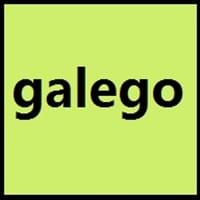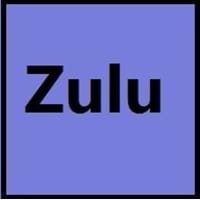Galician and Zulu
Countries
Galicia
South Africa
National Language
Galicia
South Africa
Second Language
Not spoken in any of the countries
Botswana, Lesotho, Malawi, Mozambique, Swaziland, Zimbabwe
Speaking Continents
Europe
Africa
Minority Language
Not spoken in any of the countries
Not spoken in any of the countries
Regulated By
Royal Galician Academy (Real Academia Galega)
Pan South African Language Board
Interesting Facts
- In Galician language, there are no compound tenses.
- The earliest document in Galician language was written in 1228 which was legal charter for a municipality of Galicia.
- The meaning of word "Zulu" means "Sky"and Zulu was the name of the ancestor who founded the Zulu royal line in about 1670.
- Zulu language has many loanwords borrowed from Afrikaans and English Languages.
Similar To
Portuguese Language
Xhosa Language
Derived From
Latin
Not Available
Alphabets in
Galician-Alphabets.jpg#200
Zulu-Alphabets.jpg#200
Writing Direction
Left-To-Right, Horizontal
Not Available
Language Levels
Not Available
Time Taken to Learn
Not Available
Thank You
Grazas
Ngiyabonga
How Are You?
Que tal estás?
unjani
Good Night
Boas noites
okuhle ebusuku
Good Evening
Boa tarde
okuhle kusihlwa
Good Afternoon
Boa tarde
okuhle ntambama
Good Morning
Bos días
okuhle ekuseni
Please
Por favor
Ngiyacela
Sorry
Síntoo!
Ngiyaxolisa
I Love You
Ámote
Ngiyakuthanda wena
Dialect 1
Eastern Galician
Qwabe
Where They Speak
East Galicia
Gabon, South Africa
Dialect 2
Central Galician
central KwaZulu-Natal Zulu
Where They Speak
Central Galicia
Georgia, South Africa
Dialect 3
Western Galician
Ndebele
Where They Speak
West Galicia
Zimbabwe
Speaking Population
Not Available
Second Language Speakers
Not Available
Native Name
Galego
isiZulu
Alternative Names
Galego, Gallego
Isizulu, Zunda
French Name
galicien
zoulou
German Name
Galicisch
Zulu-Sprache
Pronunciation
[ɡaˈleɣo]
Not Available
Ethnicity
Not Available
Zulu people
Language Family
Indo-European Family
Niger-Congo Family
Subgroup
Not Available
Benue-Congo
Branch
Not Available
Beatu
Early Forms
Medieval Galician
urban Zulu
Standard Forms
Galician
Deep Zulu
Language Position
Not Available
Signed Forms
Not Available
Not Available
Scope
Individual
Individual
ISO 639 6
Not Available
Not Available
Glottocode
gali1258
zulu1248
Linguasphere
51-AAA-ab
99-AUT-fg
Language Type
Living
Living
Language Linguistic Typology
Not Available
Subject-Verb-Object
Language Morphological Typology
Not Available
Not Available
All Galician and Zulu Dialects
Most languages have dialects where each dialect differ from other dialect with respect to grammar and vocabulary. Here you will get to know all Galician and Zulu dialects. Various dialects of Galician and Zulu language differ in their pronunciations and words. Dialects of Galician are spoken in different Galician Speaking Countries whereas Zulu Dialects are spoken in different Zulu speaking countries. Also the number of people speaking Galician vs Zulu Dialects varies from few thousands to many millions. Some of the Galician dialects include: Eastern Galician, Central Galician. Zulu dialects include: Qwabe , central KwaZulu-Natal Zulu. Also learn about dialects in South American Languages and North American Languages.
Galician and Zulu Speaking population
Galician and Zulu speaking population is one of the factors based on which Galician and Zulu languages can be compared. The total count of Galician and Zulu Speaking population in percentage is also given. The percentage of people speaking Galician language is Not Available whereas the percentage of people speaking Zulu language is 0.16 %. When we compare the speaking population of any two languages we get to know which of two languages is more popular. Find more details about how many people speak Galician and Zulu on Galician vs Zulu where you will get native speakers, speaking population in percentage and native names.
Galician and Zulu Language Codes
Galician and Zulu language codes are used in those applications where using language names are tedious. Galician and Zulu Language Codes include all the international language codes, glottocodes and linguasphere.





